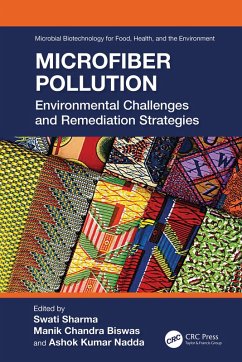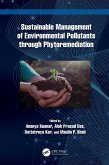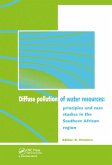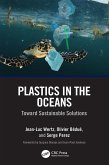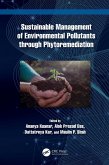Microfiber Pollution (eBook, ePUB)
Environmental Challenges and Remediation Strategies
Redaktion: Sharma, Swati; Nadda, Ashok Kumar; Biswas, Manik Chandra
52,95 €
52,95 €
inkl. MwSt.
Sofort per Download lieferbar

26 °P sammeln
52,95 €
Als Download kaufen

52,95 €
inkl. MwSt.
Sofort per Download lieferbar

26 °P sammeln
Jetzt verschenken
Alle Infos zum eBook verschenken
52,95 €
inkl. MwSt.
Sofort per Download lieferbar
Alle Infos zum eBook verschenken

26 °P sammeln
Microfiber Pollution (eBook, ePUB)
Environmental Challenges and Remediation Strategies
Redaktion: Sharma, Swati; Nadda, Ashok Kumar; Biswas, Manik Chandra
- Format: ePub
- Merkliste
- Auf die Merkliste
- Bewerten Bewerten
- Teilen
- Produkt teilen
- Produkterinnerung
- Produkterinnerung

Bitte loggen Sie sich zunächst in Ihr Kundenkonto ein oder registrieren Sie sich bei
bücher.de, um das eBook-Abo tolino select nutzen zu können.
Hier können Sie sich einloggen
Hier können Sie sich einloggen
Sie sind bereits eingeloggt. Klicken Sie auf 2. tolino select Abo, um fortzufahren.

Bitte loggen Sie sich zunächst in Ihr Kundenkonto ein oder registrieren Sie sich bei bücher.de, um das eBook-Abo tolino select nutzen zu können.
Microfibers, synthetic fibers like polyester and nylon, are emerging contaminants widely distributed in air, water, and soil, posing significant ecological risks. The textile industry, driven by fast fashion trends, is a major source of microfiber pollution in both aquatic and terrestrial environments.
- Geräte: eReader
- mit Kopierschutz
- eBook Hilfe
Andere Kunden interessierten sich auch für
![Sustainable Management of Environmental Pollutants through Phytoremediation (eBook, ePUB) Sustainable Management of Environmental Pollutants through Phytoremediation (eBook, ePUB)]() Sustainable Management of Environmental Pollutants through Phytoremediation (eBook, ePUB)88,95 €
Sustainable Management of Environmental Pollutants through Phytoremediation (eBook, ePUB)88,95 €![Microfiber Pollution (eBook, PDF) Microfiber Pollution (eBook, PDF)]() Microfiber Pollution (eBook, PDF)52,95 €
Microfiber Pollution (eBook, PDF)52,95 €![Diffuse Pollution of Water Resources (eBook, ePUB) Diffuse Pollution of Water Resources (eBook, ePUB)]() Diffuse Pollution of Water Resources (eBook, ePUB)155,95 €
Diffuse Pollution of Water Resources (eBook, ePUB)155,95 €![Pesticides, Organic Contaminants, and Pathogens in Air (eBook, ePUB) Pesticides, Organic Contaminants, and Pathogens in Air (eBook, ePUB)]() James N. SeiberPesticides, Organic Contaminants, and Pathogens in Air (eBook, ePUB)0,99 €
James N. SeiberPesticides, Organic Contaminants, and Pathogens in Air (eBook, ePUB)0,99 €![The Carbon Chain in Carbon Dioxide Industrial Utilization Technologies (eBook, ePUB) The Carbon Chain in Carbon Dioxide Industrial Utilization Technologies (eBook, ePUB)]() The Carbon Chain in Carbon Dioxide Industrial Utilization Technologies (eBook, ePUB)0,99 €
The Carbon Chain in Carbon Dioxide Industrial Utilization Technologies (eBook, ePUB)0,99 €![Plastics in the Oceans (eBook, ePUB) Plastics in the Oceans (eBook, ePUB)]() Jean-Luc WertzPlastics in the Oceans (eBook, ePUB)24,95 €
Jean-Luc WertzPlastics in the Oceans (eBook, ePUB)24,95 €![Sustainable Management of Environmental Pollutants through Phytoremediation (eBook, PDF) Sustainable Management of Environmental Pollutants through Phytoremediation (eBook, PDF)]() Sustainable Management of Environmental Pollutants through Phytoremediation (eBook, PDF)88,95 €
Sustainable Management of Environmental Pollutants through Phytoremediation (eBook, PDF)88,95 €-
-
-
Microfibers, synthetic fibers like polyester and nylon, are emerging contaminants widely distributed in air, water, and soil, posing significant ecological risks. The textile industry, driven by fast fashion trends, is a major source of microfiber pollution in both aquatic and terrestrial environments.
Dieser Download kann aus rechtlichen Gründen nur mit Rechnungsadresse in A, B, BG, CY, CZ, D, DK, EW, E, FIN, F, GR, HR, H, IRL, I, LT, L, LR, M, NL, PL, P, R, S, SLO, SK ausgeliefert werden.
Produktdetails
- Produktdetails
- Verlag: Taylor & Francis
- Erscheinungstermin: 28. November 2024
- Englisch
- ISBN-13: 9781040230657
- Artikelnr.: 72310745
- Verlag: Taylor & Francis
- Erscheinungstermin: 28. November 2024
- Englisch
- ISBN-13: 9781040230657
- Artikelnr.: 72310745
- Herstellerkennzeichnung Die Herstellerinformationen sind derzeit nicht verfügbar.
Swati Sharma is working as an assistant professor in the University Institute of Biotechnology, Chandigarh University, Mohali, Punjab India. Dr. Sharma has completed her PhD from the University Malaysia Pahang, Malaysia. She worked as a visiting researcher in the College of Life and Environmental Sciences at Konkuk University, Seoul, South Korea. Dr. Sharma has completed her master's (M.Sc.) from Dr. Yashwant Singh Parmar University of Horticulture and Forestry, Nauni Solan H.P., India. She has also worked as program co-coordinator at Himalayan Action Research Center Dehradun and senior research fellow at India Agricultural Research Institute. Presently, Dr. Sharma's research is in the field of biopolymers, waste management, bioplastics, hydrogels, keratin, nanofibers, sponges, beads and nanoparticles, and polymers with antioxidant and anti-cancerous activities. Dr. Swati has published more than 35 research papers in various internationally reputed journals, 15 books, and a couple of book chapters. Manik C. Biswas is a polymer and materials engineering expert with 10+ years of research and industrial experience seeking to innovate real-world textile and polymeric products in a multidisciplinary way yet individually, with expertise in polymer chemistry, fiber spinning techniques, wet processing techniques, nanomaterials synthesis, surface modification via functionalisation, and grafting and polymer reinforcement. Dr. Biswas utilises his unique knowledge of applied chemistry, chemical engineering, polymers, and fibers to guide innovations in green chemistry as well as their adoption by industry and government. He finished his PhD in fiber and polymer science from Wilson College of Textiles, North Carolina State University, USA, and is working as a materials engineer in the packaging industry focusing on materials solutions and sustainability. Dr. Biswas also finished his master's in materials science and engineering from Tuskegee University, Alabama, USA. He also another master's degree in applied chemistry and chemical engineering from University of Dhaka, Bangladesh, where he finished his B.Sc. Dr. Biswas has filed a U.S. patent and has published 25 research articles in various internationally esteemed journals and more than 6 book chapters. Ashok Kumar Nadda is working as an assistant professor in the Department of Biotechnology and Bioinformatics, Jaypee University of Information Technology, Waknaghat, Solan, Himachal Pradesh, India. He has completed his Ph.D. in Biotechnology from Department of Biotechnology, Himachal Pradesh University, Summer Hill, Shimla, India. He worked as a post-doctoral fellow in State Key Laboratory of Agricultural Microbiology, Huazhong Agricultural University, Wuhan, China. He also worked as a brain pool researcher/assistant professor at Konkuk University, Seoul, South Korea. Dr. Ashok has a keen interest in carbon utilisation, enzyme immobilisation, biomaterials, biopolymers, nanobiotechnology, biocatalysis, waste management, biomass degradation, biofuel synthesis, and biotransformations. Dr. Ashok has published more than 150 research papers in various internationally reputed journals, 34 books, and 57 book chapters and holds a couple of patents.
1. Introduction to Microfiber Pollution. Sources and Ubiquity of
Microfibers.
2. Fate of Microplastics and Microfibers.
3. Detection and Characterization Techniques for Microfiber in
Wastewater.
4. Effect of Microfiber Pollutants in Freshwater Ecosystems.
5. Marine Microfiber Pollution: Prevalence and Effect.
6. Soil Pollution by Microfibers: Harmful Effects.
7. Infiltration of Microfibers in Marine Habitats and Food Chain.
8. Microfiber Surface Acting as a Potential Niche for Proliferation of
Microbial Community.
9. Microfibers as Carcinogenic and Neurodegenerative Agents.
10. Microfibers Accumulation in Aquatic Organisms.
11. Use of Biodegradable Fibers over Synthetic Fibers.
12. Advance Technologies to Reduce Marine Microfiber Pollution.
13. Role of Textile Industries in Microfiber Pollution.
14. Future Perspectives.
15. Role of Plastics and Packaging Industry.
Microfibers.
2. Fate of Microplastics and Microfibers.
3. Detection and Characterization Techniques for Microfiber in
Wastewater.
4. Effect of Microfiber Pollutants in Freshwater Ecosystems.
5. Marine Microfiber Pollution: Prevalence and Effect.
6. Soil Pollution by Microfibers: Harmful Effects.
7. Infiltration of Microfibers in Marine Habitats and Food Chain.
8. Microfiber Surface Acting as a Potential Niche for Proliferation of
Microbial Community.
9. Microfibers as Carcinogenic and Neurodegenerative Agents.
10. Microfibers Accumulation in Aquatic Organisms.
11. Use of Biodegradable Fibers over Synthetic Fibers.
12. Advance Technologies to Reduce Marine Microfiber Pollution.
13. Role of Textile Industries in Microfiber Pollution.
14. Future Perspectives.
15. Role of Plastics and Packaging Industry.
1. Introduction to Microfiber Pollution. Sources and Ubiquity of
Microfibers.
2. Fate of Microplastics and Microfibers.
3. Detection and Characterization Techniques for Microfiber in
Wastewater.
4. Effect of Microfiber Pollutants in Freshwater Ecosystems.
5. Marine Microfiber Pollution: Prevalence and Effect.
6. Soil Pollution by Microfibers: Harmful Effects.
7. Infiltration of Microfibers in Marine Habitats and Food Chain.
8. Microfiber Surface Acting as a Potential Niche for Proliferation of
Microbial Community.
9. Microfibers as Carcinogenic and Neurodegenerative Agents.
10. Microfibers Accumulation in Aquatic Organisms.
11. Use of Biodegradable Fibers over Synthetic Fibers.
12. Advance Technologies to Reduce Marine Microfiber Pollution.
13. Role of Textile Industries in Microfiber Pollution.
14. Future Perspectives.
15. Role of Plastics and Packaging Industry.
Microfibers.
2. Fate of Microplastics and Microfibers.
3. Detection and Characterization Techniques for Microfiber in
Wastewater.
4. Effect of Microfiber Pollutants in Freshwater Ecosystems.
5. Marine Microfiber Pollution: Prevalence and Effect.
6. Soil Pollution by Microfibers: Harmful Effects.
7. Infiltration of Microfibers in Marine Habitats and Food Chain.
8. Microfiber Surface Acting as a Potential Niche for Proliferation of
Microbial Community.
9. Microfibers as Carcinogenic and Neurodegenerative Agents.
10. Microfibers Accumulation in Aquatic Organisms.
11. Use of Biodegradable Fibers over Synthetic Fibers.
12. Advance Technologies to Reduce Marine Microfiber Pollution.
13. Role of Textile Industries in Microfiber Pollution.
14. Future Perspectives.
15. Role of Plastics and Packaging Industry.
